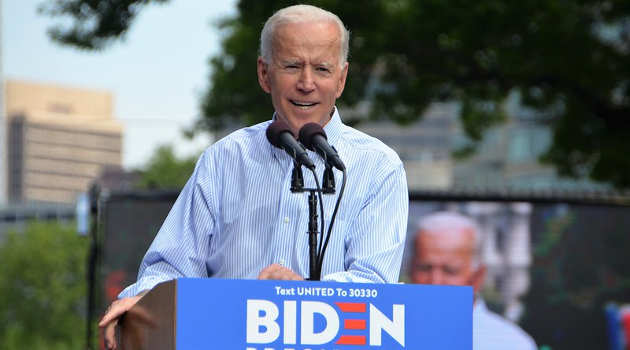The day after the election, I wrote that “left-wing goals are now very unlikely” because Republicans almost certainly will retain control of the Senate.
But perhaps I should have been ever bolder and argued that the election was a rejection of the left-wing agenda.
An editorial from the Wall Street Journal points out that voters did not vote for bigger government or more statism.
…the closer we inspect the nationwide election returns, the more the result looks like a defeat…for the progressive agenda. …Democrats lost seats in the House, giving up some of the suburban gains they made in 2018 while continuing to struggle in rural areas. …A GOP Senate may compromise with Mr. Biden around centrist ideas, but the aggressive House agenda of the last two years would die again.
This result is all the more remarkable given that Democrats had nearly all of the media, Silicon Valley billionaires, and all of the leading cultural figures and institutions helping them. …The lack of coattails was also evident in the states, where Democrats spent heavily to flip legislatures. …The GOP flipped both legislative bodies in New Hampshire, despite Mr. Trump’s loss in the Granite State, and Republicans protected their advantage nearly everywhere else. …There was no blue wave, and certainly no mandate for progressive change. …in their considerable wisdom, the voters may have elected Mr. Biden but they left his party and its radical ideas behind.
Some readers may think that the Wall Street Journal‘s editors are engaging in spin. In other words, because of their pro-market views, they’re trying to make it seem like a defeat wasn’t really a defeat.
But what about Helaine Olen, a reliably left-wing columnist for the Washington Post, who reached the same conclusion when opining about election results from California.
Proposition 22 — which would allow gig-economy companies such as Uber, Lyft and DoorDash to continue treating drivers as independent contractors — passed handily. On the other hand, Proposition 16, which would have restored affirmative action to California’s public college and university admissions, has gone down in defeat. …Let’s take Proposition 22. Activists have been unhappy with the tech giants of the sharing economy for years,
pointing out repeatedly that they are using venture capital to subsidize an unprofitable industry and that, moreover, they offer almost nothing in either the way of labor or consumer protection. The entire business model is designed to get around government regulations. …Voters did not appear particularly concerned that allowing a major employer to override state regulation and effectively set its own working conditions is a terrible precedent — not when a few extra dollars per ride was at stake. When it came down to worker welfare vs. short-term convenience and financial gain, it wasn’t even a contest. …Proposition 16…supporters roundly outspent opponents and hoped the increased attention to issues of systemic racial inequities in the wake of the killing of George Floyd would help them garner support. …The biggest obstacle might have been the traditional antipathy toward affirmative action reasserting itself — a survey last year found that 3 out of 4 Americans opposed using race or ethnicity as a factor in college admissions.
And the New York Times isn’t exactly a bastion of right-wing thinking, yet an article by Thomas Fuller, Shawn Hubler, Tim Arango and also acknowledges that the election results were not great for the left.
…the nation’s most populous state put up mammoth numbers for the Democrats. But dig a little deeper into the results and a more complex picture of the Golden State voter emerges, of strong libertarian impulses and resistance to some quintessentially liberal ideas. In a series of referendums, voters in California rejected affirmative action, decisively shot down an expansion of rent control and eviscerated a law that gives greater labor protections for ride-share and delivery drivers, a measure that had the strong backing of labor unions.
A measure that would have raised taxes on commercial landlords to raise billions for a state that sorely needs revenue also seemed on track for defeat. …said Bob Shrum, a former Democratic strategist…“California is a very liberal state that is now resistant to higher taxes.” …For all their liberal leanings on issues like the environment, California voters have long been less welcoming to new taxes… Proposition 15, would have removed the Proposition 13 tax limits on commercial properties like office buildings and industrial parks, continuing to shield homeowners while raising an estimated $6.5 billion to $11.5 billion a year for public schools and local governments. The measure was trailing on Thursday.. More than $100 million was also spent on another hot-button measure, rent control. Polls showed that the housing crisis was the No. 1 concern for state voters… And yet voters up and down the state resoundingly rejected efforts to expand tenants’ rights and rent control. …What do voters think about voting for Democrats and at the same time not supporting Democratic-led initiatives? José Legaspi, a Los Angeles resident…voted for Mr. Biden and did not think twice about opposing the measure that would raise taxes on commercial properties. “I truly believe in paying taxes,” he said. “However there is a point at which one should limit how much more in taxes one should personally pay.”
The bottom line is that Joe Biden won the White House (barring some dramatic and unexpected developments), but not because of his statist agenda.
It’s more accurate to say that voters wanted to end the sturm and drang of Trump, but without embracing bigger government.
P.S. I’m not going to pretend that voters are rabid libertarians who are clamoring for my preferred policies (such as shutting down departments, genuine entitlement reform, etc). But I also think that it’s safe to say that they don’t want the left’s agenda (class warfare, Medicare for all, green new deal, etc) of bigger government and more dependency.

